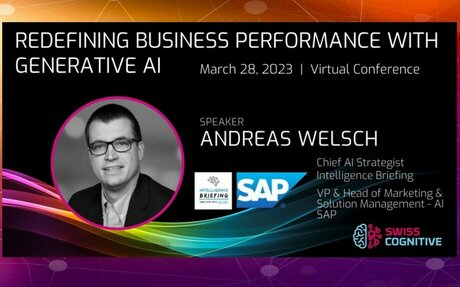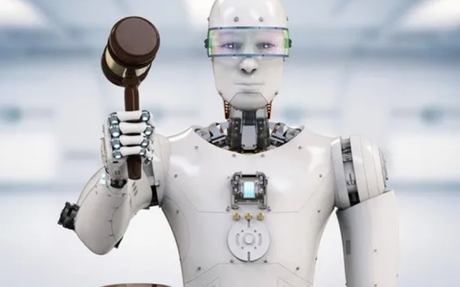
Voice Assistants and AI: The Future of Human-Computer Interaction
There is no denying that artificial intelligence and voice assistants have taken the world by storm. While the development and adoption of these tools are still in their initial phases, they are already changing how we consume content and perform our daily menial tasks.

SwissCognitive AI Radar with Andreas Welsh: Redefining Business Performance with Generative AI
In this week’s SwissCognitive AI Radar, we provide you with Andreas Welsch’s best studies where he explores the cutting-edge technology of generative AI and the potential it holds for businesses. Learn about the risks and benefits of incorporating this technology, and discover how to use it in low-risk scenarios to support individuals with pre-existing knowledge.

Dangers of Tech Myopia - Redefining Business Performance with Generative AI
With a hammer in hand, I search for nails … this classic quip applies to the hype around large language models today. We all marvel at the output, make fun of it, search for applications for it, and ignore the alternatives. We can do better as these models are not at all ready for use.

Guilty! Well, Let AI Decide - AI In The Judiciary System
The use of Artificial Intelligence in decision-making has the potential to significantly improve the efficiency and effectiveness of the judiciary system. However, it also raises ethical concerns, including the issue of bias in data and a lack of transparency in decision-making.

The CEO’s Guide to the Generative AI Revolution
This powerful technology has the potential to disrupt nearly every industry, promising both competitive advantage and creative destruction. Here’s how to strategize for that future.

AI is about to remake the pharmaceutical industry
If successful, AI promises nothing less than a revolution for the pharmaceutical industry: It could dramatically reduce the time it takes to develop a new medicine, as well as help identify new drug molecules that have so far eluded scientists.

Why Artificial Intelligence is Revolutionizing Marketing
The marketing industry is not immune to this digital transformation, with leading brands starting to embrace the opportunities the technology brings. Gaining a better understanding of customer behavior is one of the core benefits of AI in marketing.

How Artificial intelligence is changing your life unknowingly
“AI is revolutionizing the everyday processes in several industries and changing the very core of how business is done. We are seeing this upheaval in every manpower-oriented industry like education, retail, healthcare, and manufacturing. Decisions which used to take months because of manual processing and data inputs are now being carried out in a few minutes..."

Sengkang General Hospital to promote AI-assisted colonoscopies
Colorectal cancer is one of the top two killer cancers in Singapore, affecting around 2,000 people each year. The disease is usually diagnosed among people aged 50 and above and is the most common among men. AI-assisted technology has been proven to be useful in accurately detecting and removing polyps given its high screening sensitivity and its ability to differentiate between pre-cancerous and non-precancerous polyps.

Forum tackles how AI can help deal with global food security
With the world’s population predicted to hover around 9.8 billion by 2050, artificial intelligence could help feed people across the globe now and in the future. That makes artificial intelligence (AI) an ideal topic for the third Future of Food Forum on March 20 at the University of Florida.